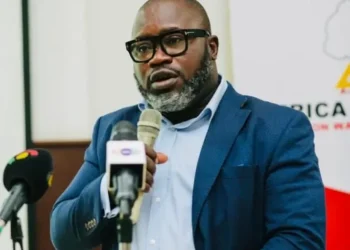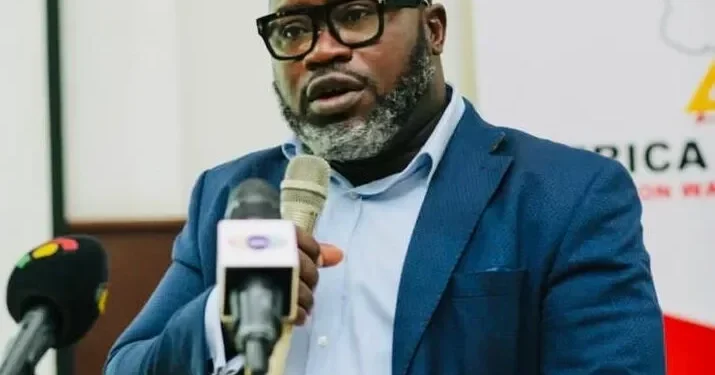The Minister of Information, Fatimatu Abubakar, has announced that the government is advocating for stiffer punishments for individuals who assault journalists while they perform their duties. This development comes in response to a worrying increase in attacks on media personnel, underscoring the urgent need to protect media freedom in Ghana.
During a media briefing, Ms. Abubakar revealed that the Information Ministry had recently engaged with the judicial service to discuss this pressing issue and explore effective solutions. The objective of these discussions is to ensure that perpetrators of such assaults face more severe penalties, thereby deterring future attacks.
“If you would remember, when there was this issue between Caleb Kudah and the National Security, Citi FM wrote a petition and it was a petition to the mechanism [National Media Commission]. So, it was the mechanism that took over the case to the extent that National Security had to respond.”
Fatimatu Abubaka, Minister of Information
Data from the Ghana Journalists Association (GJA) underscores the urgency of this issue. Over the past five years, from 2019 to 2023, the GJA documented a total of 45 cases of assaults and attacks against journalists and media institutions. The year 2023 alone saw an alarming peak, with four cases reported in October—the highest number of attacks in any single month within the period.
The Information Ministry has been proactive in its efforts, holding a stakeholder engagement with the Ghana Journalists Association (GJA) in January and February of this year.
Ms. Abubakar stated, “As a ministry, we are adding our voices to the advocacy for stiffer punishment for people who attack journalists.”
This disturbing trend signifies a worsening situation for media personnel, highlighting the increasing risks they face in the line of duty. Attacks on journalists not only threaten their personal safety but also undermine press freedom and the public’s right to information.
The government’s push for harsher penalties aims to create a safer environment for journalists, ensuring they can report freely and without fear of violence.
The effects of such a policy could be far-reaching. By imposing stricter punishments, the government hopes to deter potential attackers and signal a zero-tolerance stance on violence against journalists. This could lead to a decrease in assault cases, fostering a more secure environment for media professionals and reinforcing the principle of freedom of the press.
Ms. Abubakar further noted that the government is taking several steps to educate the public and raise awareness about the importance of protecting journalists and maintaining media freedom. These efforts involve collaboration with international organizations, and civil societies, and the implementation of educational programs aimed at journalists and the general public.
“The government works closely with international bodies such as the United Nations (UN) and UNESCO to implement initiatives that promote press freedom and journalist safety. For instance, the UN Plan of Action on the Safety of Journalists and the Issue of Impunity includes organizing training workshops and capacity-building programs for journalists.”
Fatimatu Abubaka, Minister of Information
These programs focus on safety protocols, risk assessment, digital security, legal assistance, and conflict reporting. UNESCO leads the annual celebration of World Press Freedom Day, which raises awareness about the importance of press freedom and commemorates journalists who have lost their lives in the line of duty.
Through these efforts, the government aims to create a supportive environment for journalists, enhance public understanding of the importance of media freedom, and ensure that journalists can perform their duties safely and effectively.
The government’s advocacy for stiffer penalties is a critical step towards safeguarding journalists in Ghana. As the nation grapples with the rising trend of attacks on media personnel, these measures are essential to uphold the integrity of journalism and ensure the continued flow of accurate and unbiased information to the public.
READ ALSO: FAO Highlights The Transformative Power of AI in Digital Agriculture























